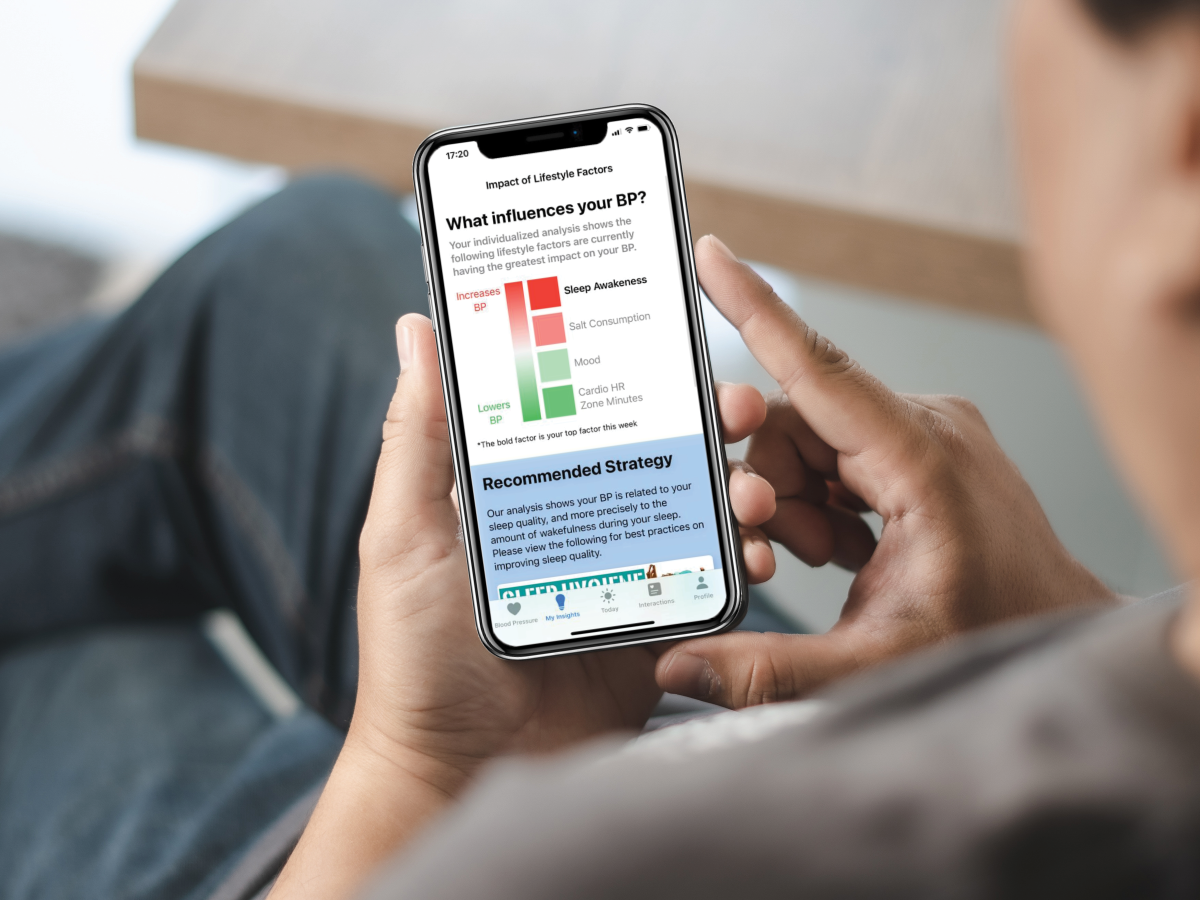New AI health coach lowers blood pressure and boosts patient engagement
A fully digital, artificial intelligence (AI)–driven lifestyle coaching program can significantly reduce blood pressure (BP) in adults.

A groundbreaking study published in JMIR Cardio reveals that a fully digital, artificial intelligence (AI)–driven lifestyle coaching program can significantly reduce blood pressure (BP) in adults with hypertension.
This innovative program uses data from wearable activity trackers and BP monitors, alongside a mobile app questionnaire, to provide personalized lifestyle guidance. The research team, led by Jared Leitner from the University of California, San Diego, aims to revolutionize hypertension management and enhance patient engagement through this high-tech approach.
The study involved a single-arm nonrandomized trial with 141 participants who received personalized lifestyle advice via SMS text messages and a mobile app. Over a 24-week period, these participants, all with stage 2 hypertension, experienced notable reductions in both systolic and diastolic BP.
By the 12-week mark, systolic BP had decreased by an average of 9.6 mm Hg and diastolic BP by 5.7 mm Hg. At the end of 24 weeks, the reductions were even more significant, with systolic BP dropping by 14.2 mm Hg and diastolic BP by 8.1 mm Hg.
This AI-driven precision coaching program not only helped more participants achieve BP control but also reduced the number of individuals with stage 2 hypertension. The study also reported high levels of participant engagement and minimal need for manual clinician intervention, suggesting that the AI approach effectively manages BP while easing the burden on healthcare providers.
“By pinpointing the top lifestyle contributors to patients’ hypertension and providing precise guidance, the AI-powered lifestyle coaching was able to maintain high patient engagement leading to improved patient outcomes. This study demonstrates how an AI-based, autonomous approach to hypertension-related lifestyle coaching can increase scalability and accessibility to effective blood pressure management,” commented Dr. Leitner.
The findings of this study underscore the potential for digital health innovations to transform the management of hypertension. By offering scalable, cost-effective, and personalized care, this AI-driven program could provide a viable alternative to traditional coaching models and enhance the overall effectiveness of hypertension management.
Related Stories
The trial was designed to evaluate the impact of AI-driven personalized lifestyle guidance on BP management. Participants received tailored advice based on data collected from wearable devices and regular questionnaires.
This information was processed by the AI to deliver specific recommendations aimed at improving the participants' lifestyle habits, such as diet and physical activity. Throughout the study, the AI program demonstrated its ability to adapt to the individual needs of the participants, thereby ensuring high levels of engagement. The success of the program was measured not only by the significant reductions in BP but also by the sustained engagement of the participants over the 24-week period.
These results highlight the effectiveness of the AI-driven program in reducing BP, a critical factor in managing hypertension. The reductions observed in both systolic and diastolic BP are significant, indicating that the program can have a meaningful impact on participants' cardiovascular health.
Advantages of AI-Driven Coaching
One of the major advantages of this AI-driven lifestyle coaching program is its ability to operate with minimal clinician intervention. This feature is particularly beneficial in reducing the workload for healthcare providers, allowing them to focus on more complex cases while the AI handles routine lifestyle guidance.
Moreover, the high level of participant engagement suggests that the AI-driven approach is not only effective but also user-friendly. Participants were able to follow the tailored advice and achieve significant health improvements without the constant need for direct human intervention.
Implications for Future Hypertension Management
This study provides strong evidence that AI-driven programs can play a crucial role in the future of hypertension management. By leveraging technology to provide personalized and scalable care, these programs can make effective BP management accessible to a wider population.
The success of this study opens the door for further research into AI-driven health interventions, potentially expanding to other areas of chronic disease management. As digital health technologies continue to advance, they hold the promise of transforming healthcare delivery and improving patient outcomes on a large scale.
The AI-driven lifestyle coaching program represents a promising advancement in hypertension management. Its ability to deliver personalized care, maintain high levels of engagement, and reduce BP significantly positions it as a potential game-changer in the field.
For more science news stories check out our New Innovations section at The Brighter Side of News.
Note: Materials provided above by The Brighter Side of News. Content may be edited for style and length.
Like these kind of feel good stories? Get the Brighter Side of News' newsletter.
Joshua Shavit
Science & Technology Writer | AI and Robotics Reporter
Joshua Shavit is a Los Angeles-based science and technology writer with a passion for exploring the breakthroughs shaping the future. As a contributor to The Brighter Side of News, he focuses on positive and transformative advancements in AI, technology, physics, engineering, robotics and space science. Joshua is currently working towards a Bachelor of Science in Business Administration at the University of California, Berkeley. He combines his academic background with a talent for storytelling, making complex scientific discoveries engaging and accessible. His work highlights the innovators behind the ideas, bringing readers closer to the people driving progress.



